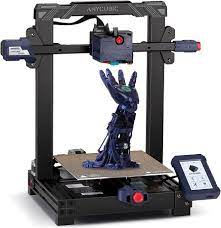The field of healthcare has witnessed remarkable advancements in recent years, with significant progress in medical materials leading to groundbreaking innovations. From enhanced implant materials to smart drug delivery systems, these developments have revolutionized patient care and paved the way for more effective treatments. Some of the noteworthy advancements in medical materials that have emerged in the last few years, showcase the tremendous potential they hold for the future of medicine.
Biocompatible Materials
Biocompatible materials play a vital role in medical devices and implants as they minimize adverse reactions and promote better patient outcomes. Researchers have made significant strides in the development of novel biocompatible materials. For instance, a team of scientists created a breakthrough around hydrogel that mimics the human tissue’s flexibility and strength, offering improved compatibility and reducing the risk of complications during implantation procedures. Such advancements not only enhance the performance of medical implants but also facilitate faster healing and minimize the risk of rejection.
- For instance, Bioactive glasses have been used in bone tissue engineering and regenerative medicine. They have the ability to bond with bone, promote cell growth, and have antimicrobial properties.
- Medtronic is a global medical technology company that offers a wide range of medical devices and therapies. They have been involved in the development of biocompatible materials for various applications, including cardiac implants, orthopedics, and drug delivery systems.
- Known for its innovative orthopedic implants and materials, Zimmer Biomet focuses on developing biocompatible materials for joint replacements, dental implants, and spinal devices.
- A subsidiary of B. Braun Melsungen AG, Aesculap specializes in surgical instruments and implants. They are actively involved in the development of biocompatible materials for various medical applications.
3D Printing in Healthcare:
 The emergence of 3D printing technology has revolutionized manufacturing across various industries, and healthcare is no exception. The ability to create patient-specific medical devices and implants using 3D printing has opened up new possibilities in personalized medicine. In recent years, 3D printing has been utilized to develop custom orthopedic implants, prosthetics, and even organs. Scientists have successfully introduced 3D-printed complex structures, such as heart valves and spinal discs, using biocompatible materials. These advancements offer tailored treatments, improved functionality, and reduced surgical risks for patients.
The emergence of 3D printing technology has revolutionized manufacturing across various industries, and healthcare is no exception. The ability to create patient-specific medical devices and implants using 3D printing has opened up new possibilities in personalized medicine. In recent years, 3D printing has been utilized to develop custom orthopedic implants, prosthetics, and even organs. Scientists have successfully introduced 3D-printed complex structures, such as heart valves and spinal discs, using biocompatible materials. These advancements offer tailored treatments, improved functionality, and reduced surgical risks for patients.
The demand for 3D printing medical devices is witnessing an upsurge owing to the number of benefits offered by it. They are greatly used by the surgeons to reduce the duration of anesthesia exposure and planning surgeries.
- 3D printing enables the production of patient-specific implants tailored to an individual’s anatomy. Companies like Stryker and Medtronic have utilized 3D printing to create customized implants for orthopedic and craniofacial surgeries, improving surgical outcomes and patient satisfaction.
- Bioprinting involves the 3D printing of living cells and biomaterials to create functional tissues and organs. While still in the early stages, this technology holds promise for tissue engineering and regenerative medicine. Companies like Organovo and CELLINK are actively engaged in bioprinting research and development.
Antibacterial Coatings:
Infection prevention is a critical aspect of medical care, particularly in surgical procedures and implantable devices. Antibacterial coatings have emerged as a promising solution to combat healthcare-associated infections. Over the past couple of years, researchers have developed innovative antibacterial coatings capable of preventing biofilm formation, reducing the risk of infections, and improving patient outcomes. These coatings, applied to medical devices like catheters or prosthetic implants, release antimicrobial agents that inhibit the growth of bacteria, thereby minimizing the chances of complications.
The major push for shifting to bio-based coating solutions is derived from environmental considerations. The rising awareness among manufacturers has resulted in accelerated demand for the bio-based coating material.
- Covalon is a company that develops advanced medical coatings, including antimicrobial coatings, for various medical devices. Their products help prevent infections associated with catheters, surgical dressings, and other medical equipment.
- DSM Biomedical offers a range of biomedical materials, including antimicrobial coatings, to prevent bacterial adhesion and biofilm formation on medical devices. Their coatings find applications in orthopedics, cardiovascular devices, and wound care.
Smart Drug Delivery Systems:
Efficient drug delivery plays a crucial role in optimizing therapeutic outcomes. In recent years, researchers have focused on developing smart drug delivery systems that can precisely target affected areas, reduce side effects, and enhance drug efficacy. These nanomaterials can be engineered to respond to specific biological cues, such as pH or temperature changes, enabling the release of medications at the desired site or time, thereby improving treatment efficiency.
- Medtronic is a leading medical technology company that develops a wide range of implantable devices, including drug delivery systems. Their smart pumps and implants deliver medications in a controlled manner to specific sites, enhancing treatment outcomes.
- Nanoform specializes in nanotechnology-based drug delivery solutions. Their proprietary nanonization™ technology enables the production of nanoparticle-based formulations, improving drug solubility, bioavailability, and targeting capabilities.
Biocompatible materials have improved the performance of implants, while 3D printing has enabled personalized medical devices and organs. Antibacterial coatings and smart drug delivery systems offer innovative solutions to combat infections and enhance treatment outcomes. These advancements signify a brighter future for patient care, as medical materials continue to evolve and transform the way we diagnose, treat, and prevent diseases. With ongoing research and innovation, we can anticipate even more exciting breakthroughs in the years to come, promising to revolutionize healthcare as we know it.


